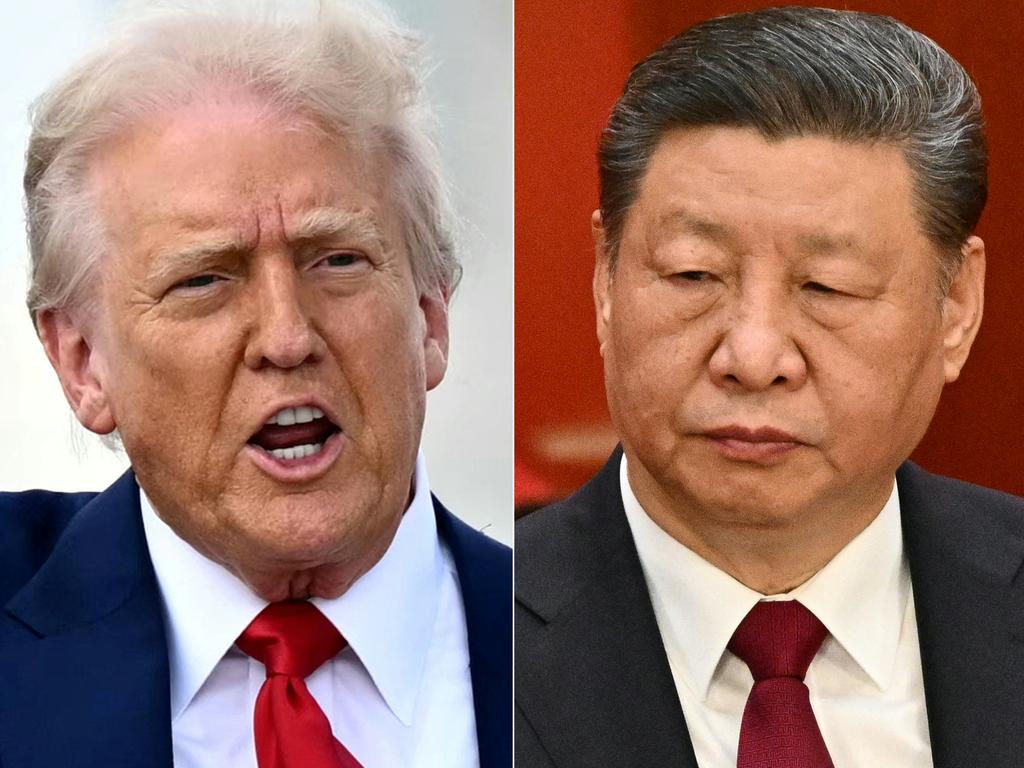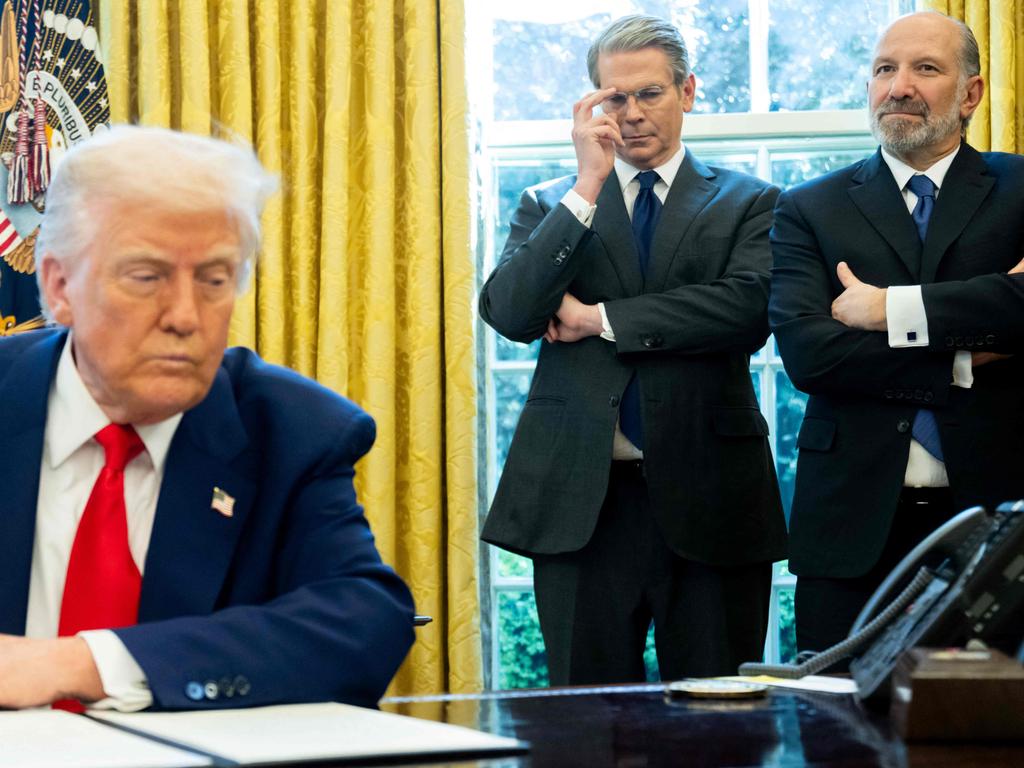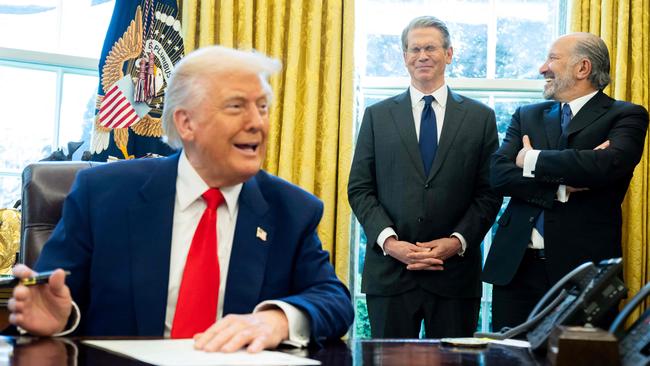
The decision by Donald Trump to suspend the suite of reciprocal tariffs he announced last week was very welcome news. The universal 10 per cent tariff which applied to Australia will now apply across the board for all imports into the US, save from China, where much higher rates will apply.
In effect, the American consumer will be hit by a badly designed sales tax on imported goods and services – there is no value-added element as there is in the GST. There is clearly still a lot of water to go under the bridge in relation to China-US trade relations, but it is reasonable to conclude that the reciprocal tariffs that are being paused for 90 days won’t be resurrected.
Is this a case of calculated brinkmanship on the part of Trump or a humiliating backdown? The brutal truth is that the bond market won – recall here how the bond market brought down Liz Truss, the shortest-serving prime minister of Britain. The latest move was made more complicated by the fact that the US dollars is the world’s reserve currency – an arrangement that has both pluses and minuses for the country.
But the sell-off in the bond market had led to higher yields and this couldn’t be sustained for long, particularly given the US government’s ravenous appetite for more debt. To be sure, neither Japan nor China were likely to dump their existing holdings of US Treasuries. But the events of the past week meant that they were likely to be less inclined to take up any new offerings.
The US government has now been able to get away its latest issuance of securities, having initially experienced very weak demand. With the US budget currently running above 6 per cent of GDP, the need to feed the beast was immediate and unavoidable.
Trump’s change of mind may also be linked to a changing of the guard in terms of the advisers closest to him. His trade adviser Peter Navarro thankfully looks as though he has been pushed aside, and Treasury Secretary Scott Bessent has become lead counsel.
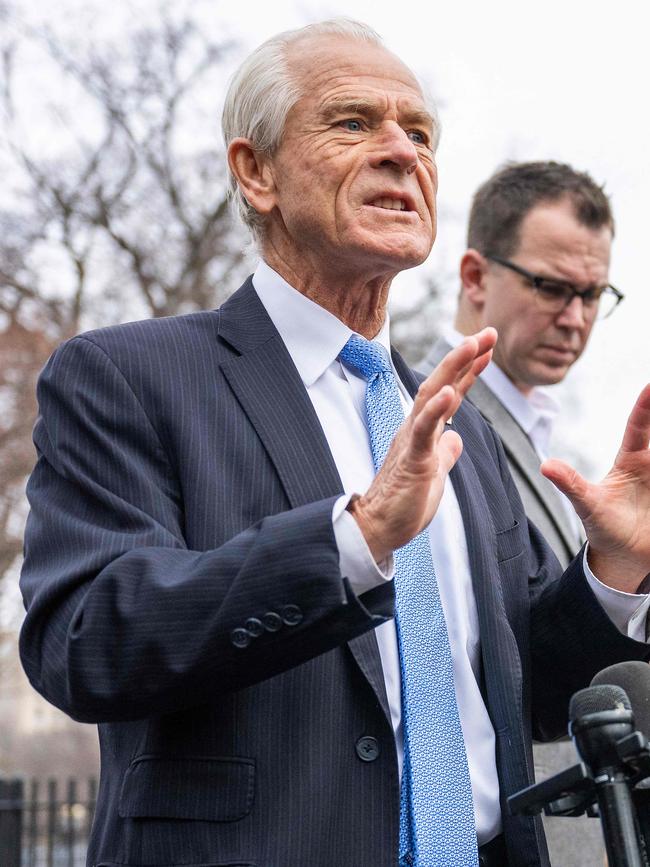
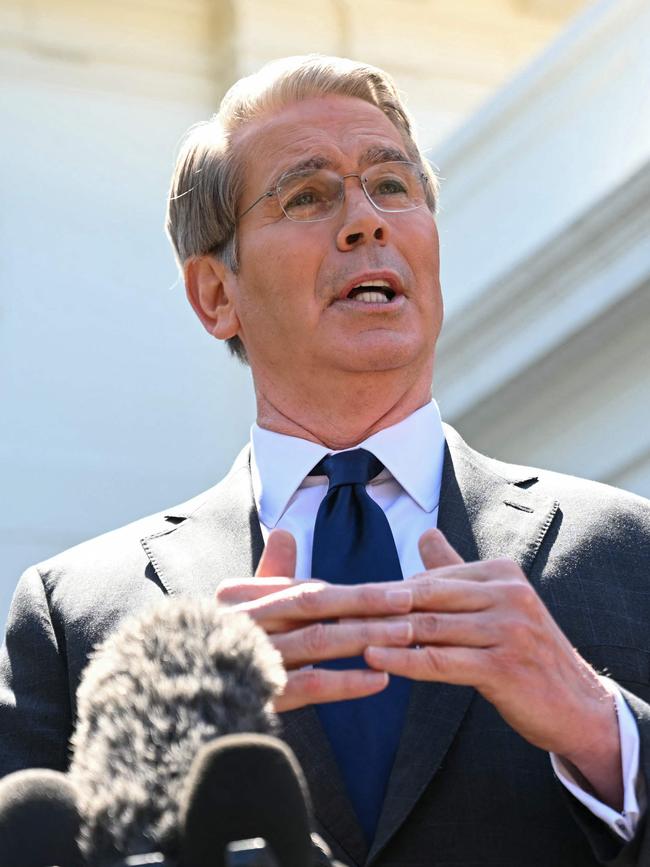
Navarro’s highly unorthodox interpretation of trade deficits is not shared with the vast majority of the economics profession. Indeed, Navarro’s dream outcome seems to be the US as an autarky – fully self-sufficient and cut off from the world. It would be a bit like North Korea, although Navarro presumably would expect higher per capita incomes.
The reality is that the US’s current account deficit has almost everything to do with the fact that the country doesn’t save much but spends a lot, including the government. To be sure, there are some trade impediments, both tariff and non-tariff, that affect trade flows. But the US itself gets up to some high jinks – subsidising farmers and imposing tariffs on pick-up trucks are two examples.
It would be better if these trade impediments were to be removed, and there may be some action on this as a result of the reciprocal tariff phase – what I call the ‘‘kiss the ring’’ period in which those countries hit with high tariffs asked what changes were required.
But Navarro completely misunderstands why most US trade deficits exist. For example, when a poor country trades with the US, it is in a position to export goods that are labour-intensive, with low labour costs a key source of competitive advantage. But poor countries are not in a position to buy a lot of expensive products from the US.
As for all that flowery rhetoric about killing the American dream spouted by Navarro, the US has the highest per capita income in the world, has basically full employment and productivity growth has extraordinarily strong over the past decade. The per capita income of the poorest state in the US is still higher than the average per capita income in Europe.
If the US is to start making sneakers or T-shirts, the workers will have to come from somewhere. Productivity would be less and workers would be paid less. In turn, average incomes would begin to grow more slowly – perhaps even decline. It’s not clear why Trump signed on to this scenario. And the little bird that told him that the price of iPhones could rise by 50 per cent was also telling.
In the end, the US and the world should probably be thankful to the bond market vigilantes.
As far as China is concerned, the situation is complicated by the geopolitical dimension. There is no doubt that China has been the worst offender when it comes to subsidising its enterprises, manipulating its currency and imposing all sorts of trade impediments. But the problems need to be sorted out separately rather than bringing on a global trade war in which global trade could collapse with its attendant negative economic consequences.
At this stage, China has made all the wrong moves by retaliating. It certainly will take a great deal of to-ing and fro-ing before any net advancements are made, but the situation with China could not be allowed to continue – and not just for the sake of the US.
Secure supply lines for essential goods and services are a legitimate objective for the US – and Australia. It’s just that Trump went about it all the wrong way.



